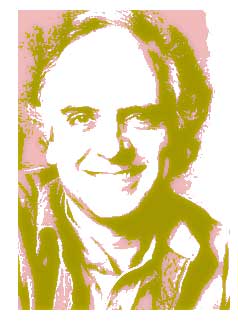
|
|||||||
|
« Bowser, RIP |
Main
| Dropping the Ball in 2007 »
My old interview with Paul Lansky: Room To Move
I decided it would be worth the effort to try to dig up my interview with Paul, (now eleven years old!), and get that back on there through the tubes of the internet. Thanks to the Wayback Machine for saving files that my old computers, hard-drive and laziness about backing up stuff couldn't solve. Here's the article, and it includes the transcript from our hour long chat, too. I spent more than my fair share of time at the old electronic music studios that were once the Columbia-Princeton studios, in it's final years. And it was truly an amazing experience, not only for the historical significance of cutting tape on the same blocks and tweaking the same oscillators that made those early "masterworks" of electronic music, but for the influence that it had on all my instrumental compositions as well (a fondness for timbral manipulation, an attention to envelope generation as a facet of phrasing, perhaps?). But down the hall the revolution had already been well underway towards a purely digital creation -- even past the doors of the bastard step-child that was FM synthesis and MIDI. Even now, I fear, I'm still enough of a academic pitch snob (or, as Davy would say, I still retain the buttstix) to find too little to enjoy of the auto-composed music from either "serious" composers or whatever you'd want to call the "techno" kids (I wouldn't know what to call them, but by simply trying to distinguish "techno" as something "other than serious" I do everyone a great injustice). But composition, like everything else, is shaken by the digital revolution, by the power of the personal computer, and now -- hopefully -- by the real gains brought about by the internet and the Long Tail. The machines of music are always changing, thankfully, and the ears that consume the ouput are as well -- and at the end of the day, the gains of digital productivity hit not only the office, but the parlor room that housed the player piano, too. Who but the biggest curmudgeons (and lord knows, there are many academic composers who fit the bill) can resist the joy of Electroplankton?
Posted by juechi at 3:57 PM
|
Recent Entries
Sticky GPS for Car Chases "If you're not cheatin, you're not trying" Robot Killers Google's Bid to bring down the Walls Learning the Playbook via Madden MoloTwit GPS Chimes Of the browser road ahead Dropping the Ball in 2007 My old interview with Paul Lansky: Room To Move Archives September 2007 August 2007 July 2007 April 2007 January 2007 August 2006 June 2006 May 2006 March 2006 February 2006 January 2006 December 2005 November 2005 October 2005 September 2005 August 2005 July 2005 June 2005 May 2005 April 2005 March 2005 February 2005 January 2005 December 2004 November 2004 October 2004 September 2004 August 2004 July 2004 June 2004 May 2004 April 2004 |
|||||





